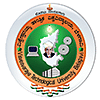MA Philosophy

MA Philosophy in Philosophy is a two-year postgraduate course that deals with classical as well as modern philosophy. After completion of Masters of Arts Philosophy, students can get job opportunities in different sectors such as Publishing Houses, Divinity, Teaching, Insurance Industries, etc. Graduates can work as Archivists, Administrators, Researchers, Interviewers, Student Affairs Manager, Insurance Underwriters, Social Worker, Content Writer, etc.
MA Philosophy Course Details
| Degree | Masters |
| Full Form | Master of Arts in Philosophy |
| Duration | 2 Years |
| Age | No specified age limit |
| Subjects Required | Subjects corresponding to the post graduation |
| Minimum Percentage | 45-50% |
| Average Fees | ₹4K - 80K PA |
| Similar Options of Study | BA (Philosophy), M.Phil |
| Average Salary | INR 4.38 LPA [Source: PayScale] |
| Employment Roles | Sr. Instructional Designer (Training & Development), ESL Teacher, Lecturer, School Teacher, Social Worker etc |
| Top Recruiters | Businesses, Community & Social Service, Diplomacy, Publishing Houses, Finance Departments, Health & Social Work, Divinity etc |
About MA Philosophy
Students always used to wonder about MA Philosophy courses. It is a 2-year postgraduate course that deals with classical as well as modern philosophy. This course includes the study of reality, existence, and the fundamental nature of knowledge. According to Wikipedia, "It typically includes a taught portion and a significant research portion, during which a thesis project is conducted under supervision.”
Table of Contents
- MA Philosophy Eligibility Criteria
- MA Philosophy Admission Process
- Popular MA Philosophy Entrance Exams
- Top MA Philosophy Colleges
- Fees Structure for MA Philosophy
- Syllabus and Subjects for MA Philosophy
- Why Choose MA Philosophy?
- Preparation Tips for MA Philosophy
- Scope of Higher Education after MA Philosophy
- MA Philosophy Salary
- Career Options After MA Philosophy
- Skills to Excel
Eligibility Criteria for MA Philosophy
Admission is offered to only those students who meet MA in Philosophy eligibility requirements. The minimum eligibility for an MA Philosophy course is a bachelor’s degree from a recognized institute with philosophy or any related subject as the major subject having a minimum of 45-50% marks in the graduation-level examination. The admissions are usually based on the entrance exams conducted by the institute or based on academic scores. There is no age limit for the course.
How To Get Admission in MA Philosophy?
For pursuing the MA Philosophy course, students must ensure that they satisfy the eligibility criteria. The course falls under the umbrella of MA course, and so the procedure for the aspirants does not change drastically. The admissions into MA Philosophy in India are done through entrance exam scores or by direct admission. Applications for admissions are available both from the university website or by directly visiting the college's admissions office.
How to Apply?
MA Philosophy course information for admission can be found on the college's official websites, where the students should apply. The registration process can be carried out via online and offline methods.
Selection Process
Admission is strictly offered to only those students who clear the minimum cut-off in boards and entrance exams. The students can get their results via email communication or can visit the college’s official website.
Popular Entrance Exams for MA Philosophy
Candidates are admitted for the MA Philosophy course based on their scores in the entrance exams. Some of the popular MA Philosophy entrance exams are:
A Quick Glance at the MA Philosophy Entrance Exams
To get into the best MA Philosophy colleges in India, a candidate should clear the entrance exams. Students should study the exam pattern and syllabus well before time. This will help students in timely preparation for the entrance exams.
Listed below is the general pattern for the entrance exams:
- The exam patterns consist of sections like aptitude, English comprehension, numerical and quantitative reasoning, general knowledge, current affairs, language proficiency, analytical abilities, mathematical aptitude.
- The paper consists of multiple-choice questions and the time duration to complete the paper is 150 to 180 minutes.
- The exam will be offline or online.
Top 10 MA Philosophy Colleges in India
Students can opt for the best colleges for MA Philosophy in India depending upon their merit and specialization needed. Some of the few MA Philosophy best colleges in India are:
|
Sl. No. |
Name of the Institute |
|
1 |
Miranda House |
|
2 |
Lady Shri Ram College for Women |
|
3 |
Hindu College |
|
4 |
Loyola College |
|
5 |
Indraprastha College for Women |
|
6 |
Jawaharlal Nehru University |
|
7 |
University of Hyderabad |
|
8 |
Mysore University |
|
9 |
Christ College |
|
10 |
Jain University |
Fee Structure for MA Philosophy
MA Philosophy fees in India are around INR 7,000 - 18,000 PA. The fees may vary according to the college or university based on the type of institute, location, infrastructure, faculties, and facilities available. Some of the colleges with fees are listed below:
|
Sl. No. |
Name of the Institute |
Average Annual Fees |
|
1 |
Miranda House |
INR 14,530 PA |
|
2 |
Lady Shri Ram College for Women |
INR 17,976 PA |
|
3 |
Hindu College |
INR 16,590 PA |
|
4 |
Loyola College |
INR 7,200 PA |
|
5 |
Indraprastha College for Women |
INR 10,500 PA |
Syllabus and Subjects for MA Philosophy
MA Philosophy duration is two years with four semesters. The syllabus is designed in such a way that it includes the study of reality, existence, and the fundamental nature of knowledge. The program consists of core and elective subjects such as Moral Philosophy, Theory of Knowledge and Reality, Logic and Language, Ethics, Religion, Philosophy of Mind, etc. Listed below are few core subjects in the course:
- Classical Indian Philosophy
- History of Western Philosophy
- Philosophy of Language
- Continental Philosophy
- Analytic Philosophy
Read More About MA Philosophy Syllabus and Subjects
Why Choose MA Philosophy?
Students often wonder about MA Philosophy details before choosing the course. Before deciding on a career, students come across queries like, "What is MA Philosophy?" and "Why choose MA Philosophy?”. To clearly understand answers to these questions, we have framed the following three pointers:
What is MA Philosophy All About?
MA Philosophy is a detailed study of the philosophies of various philosophers from different countries. This course includes the study of reality, existence, and the fundamental nature of knowledge. The course aims at providing students a general knowledge of the fundamental issues in ethics, politics, economics, human rights, culture, helping them to identify and analyze the basic reasons that motivate the above dimensions of human life.
What Does a MA Philosophy Graduate Do?
MA Philosophy offers a wide range of career options for graduates. After completion of Masters of Arts Philosophy, students can get opportunities in different sectors such as Publishing Houses, Divinity, Teaching, Insurance Industries, etc.
Archivist: Archivist evaluates records for maintenance and retention. They are specially trained in preserving the original material and helping people obtain it. Their other job responsibilities are the retrieval of information and arranging acquisition.
Reasons Why MA Philosophy Can Fetch You a Rewarding Career?
MA Philosophy may be a rewarding career for graduates. After completion students can get opportunities in different sectors such as Publishing Houses, Divinity, Teaching, Insurance Industries, etc. They can work as Archivists, Administrators, Researchers, Interviewers, Student Affairs Manager, Insurance underwriters, lecturers, Social Worker, Content Writer,s, etc.
Career Scope and Options: This course offers ample opportunities to graduates in both private and public organizations. On successful completion of this course, graduates can apply for the UGC-NET or JRF exam. Clearing these exams makes them eligible for teaching or research positions.
Read More About MA Philosophy Jobs
Preparation Tips for MA Philosophy
Having a MA Philosophy opens various career opportunities and students should be well prepared before pursuing the course. Some of the important tips for entrance exams are:
Get to Know the Syllabus: Students should know the entire syllabus of the entrance exam. Some of these exams are purely based on philosophy knowledge, whereas some exams have few sections of Indian philosophy or academic social sciences related questions.
Study the Current Affairs: Updating Current affairs regularly helps in the examination.
Practice Makes Perfect: Practicing sample question papers and model tests helps students because they can learn the exam's style and layout well beforehand.
Scope For Higher Education
There are also certain higher study options available for graduate students after MA Philosophy, which can help them better understand the subject. Also, gaining more education can help the students to update their skills and also provide career growth.
Listed below are some of the higher education options available for students:
- PhD. Philosophy
- M.Phil. Philosophy
- M.Phil in Applied Philosophy
Salary of a MA Philosophy Graduate
The average starting salary ranges from INR 2 - 6 LPA [Source: PayScale]. Graduates can work as Archivists, Administrators, Researchers, Interviewers, Student Affairs Manager, Insurance underwriters, lecturers, Social Worker, Content Writer, etc.
Read More About MA Philosophy Salary
Career Options After MA Philosophy
After completion of the course, candidates get a lot of understanding of the world and human behavior. This imparted knowledge will assist them to enter into professional areas pertaining to research, teaching, content development, or program instructor in various educational and corporate organizations. Some job roles offered to graduates are:
- Archivist
- Researcher
- Lecture
- Social Worker
- Content Writer
Skills That Make You The Best MA Philosophy Graduate
Studying philosophy can enrich personal and professional life by teaching how to acquire, analyze and use knowledge. Philosophy graduates should develop clear and analytical thinking, persuasive writing, and speaking, which are beneficial in career growth. A few necessary skills are:
- Communication skills
- Analytical thinking skills
- Argumentative skills
- Research skills
























